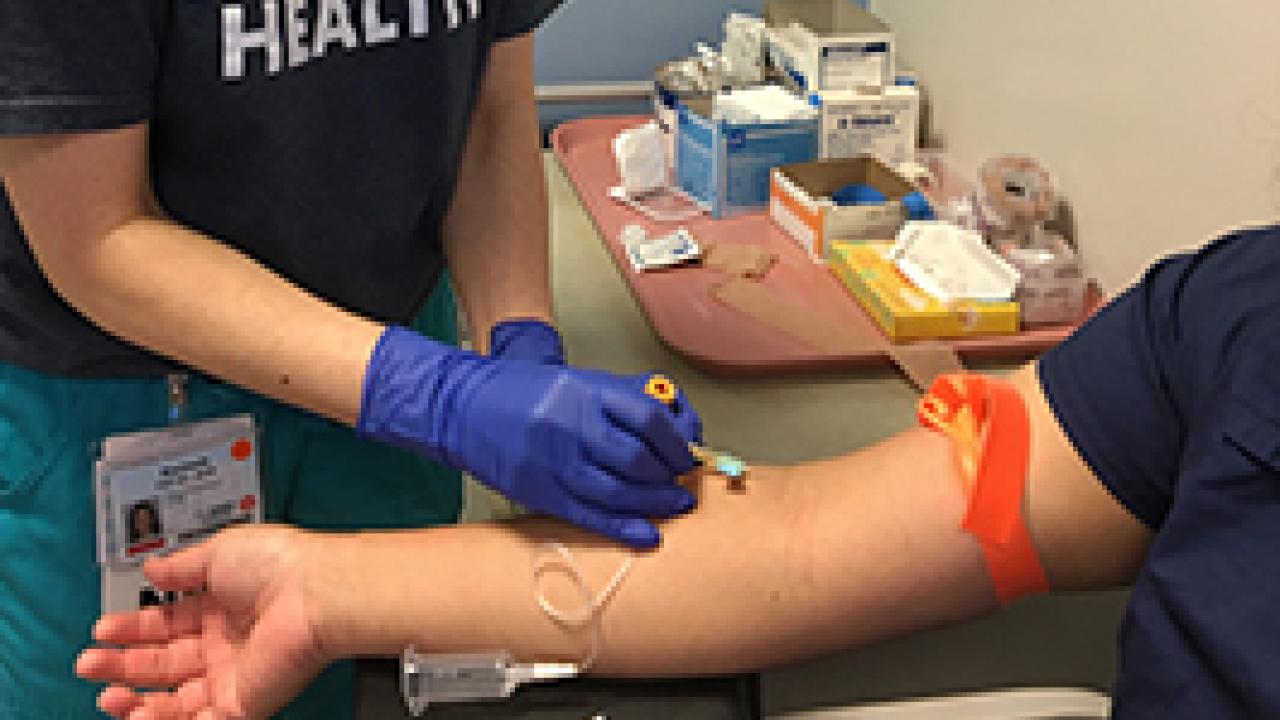
CTSC is a quiet hero of UC Davis COVID-19 research
(SACRAMENTO) — COVID-19 research and clinical trials throughout UC Davis have a quiet and crucial backbone that is hard to describe – even for the directors of this center providing the support.
The Clinical and Translational Science Center (CTSC) is one of the unsung heroes of UC Davis’s COVID-19 research while also serving as protector of ongoing clinical trials during the pandemic.
“We’re the infrastructure of research. It doesn’t sound very sexy,” said Ted Wun, CTSC director and UC Davis School of Medicine associate dean of research. “We often struggle to describe what we do, even to a medical audience. We’re like a bridge over a river. You don’t think about us, but we make it much easier to get to the other side.”
The range of the CTSC’s work begins to paint the picture. They’ve done everything from helping mine the electronic medical records and providing facilities for researchers, to linking patients to clinical trials and assisting UC Davis Medical Center nurses draw blood from patients with COVID-19.
“We have a lot of resources and the needed infrastructure – there’s that word that’s not sexy – that fills the gaps for researchers,” Wun said. “And we have a lot of relationships to help put people together.”
Among their many efforts during the pandemic, the CTSC:
- Connected researchers with each other through a variety of online tools and sessions.
- Extracted data from medical records and categorized information for researchers to provide a continually evolving picture of the disease and its symptoms.
- Developed a resource that will allow researchers from all five UC Medical Centers to share research samples from COVID-19 patients,
- Quickly created a safe place to conduct trials, communicate with patients and store and process specimens at the CTSC Clinic Research Center, the research clinic with care teams and staff who are specially trained for research.
- Coordinated with the Center for Health Technology to create or refine a variety of secure electronic and virtual methods so researchers and patients could talk.
- Sent specially trained nurses from the Clinical Research Center to help UC Davis Medical Center nurses draw blood from some patients enrolled in the remdesivir trial.
One of the CTSC’s crucial moves was to quickly organize a clinical trial review committee led by Nicholas Kenyon, associate CTSC director and chief of the Division of Pulmonary and Critical Care Medicine, to coordinate UC Davis COVID-19 clinical trials so they wouldn’t overlap and so patients and health care teams wouldn’t get overwhelmed.
“Not surprisingly, there was an explosion of interest from companies and investigators,” Wun said. “We helped them synch with each other and made sure patients got information about them. But we didn’t want researchers competing for the same patients to join their particular studies. It all went very smoothly.”
Tiger Team protects the safe progress of research during COVID-19
Another key action was to create a Tiger Team – which Wun admits actually is a sexy name. CTSC leaders put it together in the first week of the crisis with the goal of guiding then in-progress clinical trials so crucial studies could continue if appropriate safeguards were in place.
“Some institutions just shut down all clinical research,” Wun said. “For us, within 48 hours, we were working to make it as safe as possible and to offer guidance to researchers and patients.”
The team functioned as a neutral review body to help direct what essential research could continue and what needed to wait until restrictions loosened. In addition, they gave investigators guidance for staying within their protocols, given all the challenges.
“Some things could be very time sensitive, for example, a research-related scan or a safety check,” Wun said. “Even more importantly, we wanted to be sure patients got the best treatment option, which is often a clinical trial. We didn’t want another casualty of this pandemic to be people with other diseases. Cancer doesn’t care about COVID-19.”
Wun said if he boils it down, what the CTSC does actually is easy to explain. “We help create teams,” he said. “And we provide those teams with tools to perform high quality research to improve health.”